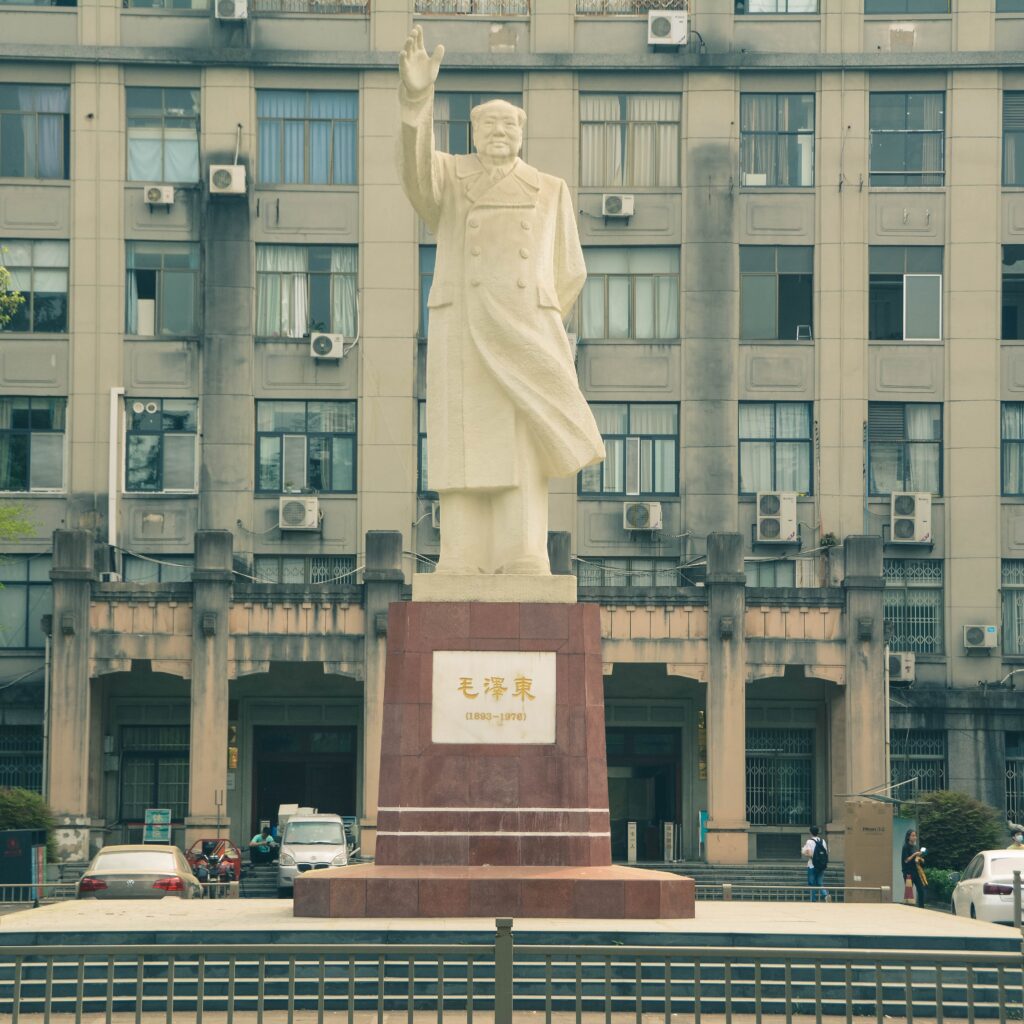Introduction:
US President Joe Biden’s upcoming visit to India for the G20 summit has sparked significant attention and discussion, particularly in light of the absence of his Chinese counterpart, Xi Jinping. Amidst geopolitical tensions and diplomatic maneuvers, the dynamics surrounding the summit have become a focal point for international observers and analysts.
G20 Summit.

US President Joe Biden has said that he is looking forward to his visit to India to attend the G20 summit. However, he also said that he was disappointed that his Chinese counterpart Xi Jinping did not attend the meeting.
In response to questions from media representatives on Sunday, President Biden said that he is going to India. He also said that he is going to meet Xi Jinping soon. According to media reports, he was referring to the ‘Asia Pacific Economic Co-Operation Forum meeting to be held in San Francisco at the end of this year. According to the White House, President Biden will arrive in Delhi on September 7 and hold bilateral talks with Prime Minister Narendra Modi on September 8, while he will attend the G20 meeting on September 9 and 10.
Chines Ministry.
The Chinese Ministry of Foreign Affairs has confirmed that President Xi Jinping will not attend the 20th meeting. It should be noted that Russian President Vladimir Putin is also not participating in the meeting. He has informed this to Prime Minister Modi over the phone. Speaking to the media, India’s Special Secretary for G20, Maktish Pardeshi, said that India is waiting for China’s written notification regarding Xi Jinping’s visit. Until something comes out in writing from China, we can’t say anything about it. The issue is being watched very closely in New Delhi’s diplomatic circles. They are treating Xi Jinping’s non-participation in the summit as ignoring India’s G20 presidency.
The Chinese Ministry of Foreign Affairs has confirmed that President Xi Jinping will not attend the 20th meeting. It should be noted that Russian President Vladimir Putin is also not participating in the meeting. He has informed Prime Minister Modi over the phone. Speaking to the media, India’s Special Secretary for G20, Maktish Pardeshi, said that India is waiting for China’s written notification regarding Xi Jinping’s visit. Until something comes out in writing from China, we can’t say anything about it. The issue is being watched very closely in New Delhi’s diplomatic circles. They are treating Xi Jinping’s non-participation in the summit as ignoring India’s G20 presidency.

According to analysts, the ongoing border tension between India and China has increased again for the last four years. The reason for this is that in the past few days, China has issued a new map to show its share of Aksai Chin and Arunachal Pradesh.
India has strongly condemned the move and termed the map as unacceptable. Disputes between the parties persist at several places in eastern Ladakh, particularly Deepsang and Demchuk. However, there have been several periods of negotiations between the two countries at the level of military commanders. Analysts are speculating on the reasons for Xi Jinping’s non-attendance.
He said that the two leaders had an informal meeting during the BRICS summit in Johannesburg, South Africa, and it was expected that Xi Jinping would attend the G20 meeting and the two leaders would discuss border disputes. will have a chance to resolve. ‘It is not good for India’
One of the senior analysts of international affairs, says that the holding of the Group 20 meeting is a big event for India. The Indian government was waiting for it and wanted the meeting to be a complete success. Because the credit for its success would go to the Modi government.
He said that Vladimir Putin is not attending because of the Ukraine war and other domestic issues. But now it is being understood that even Xi Jinping is not coming. According to him, the non-participation of these two big leaders is not a good thing for India and it can be said that the success of the meeting on the scale that India was expecting will not be so successful now.
He says that China is the second largest economy in the world after America. The absence of the presidents of China and Russia will affect the success of the meeting. This is why Joe Biden has expressed frustration. Analysts believe that there are many disputes between the United States and China, and if the Chinese president had attended the meeting, there would have been a possibility of his meeting and discussion with Joe Biden, and the parties would have had an opportunity to resolve mutual disputes.
The issue of Ukraine is high on the agenda at the Group B summit. The position of Russia and China on Ukraine is completely different from that of the United States and Western countries. If both of them had come, there could have been a concrete discussion regarding Ukraine. But their non-participation will also affect the decisions of the meeting.
The issue of Ukraine is high on the agenda at the Group B summit. The position of Russia and China on Ukraine is completely different from that of the United States and Western countries. If both of them had come, there could have been a concrete discussion regarding Ukraine. But their non-participation will also affect the decisions of the meeting.
Some analysts say there is speculation that Xi Jinping wants to see India, which wants to demonstrate its culture, pluralism, and economic strength through the G20 summit, in trouble. Besides, they believe that their non-participation will lead to India’s withdrawal. That is why they decided not to come.
Modi will now be able to keep his word openly’ Former diplomat Ashok Sajjanhar says Xi may have decided because he was confused about meeting and negotiating with certain leaders such as Joe Biden and Narendra Modi.
However, he also says that his non-participation gives the impression that he, as the leader of a major power, is not serious about his global responsibilities regarding this meeting.
According to him Xi Jinping not coming is good for India. Upon their arrival, the host and national and international media would focus on their activities, conversations, and body language.
In his opinion, in this case, the attention would be diverted from the substantial discussion on the G20 agenda. The second thing is that in his absence, Prime Minister Modi will be able to speak openly.
However, they also say that it would have been good if they had come. In this case, there would be an opportunity to resolve the border dispute between India and China. After October 2019, the two leaders held brief meetings in November last year in Bali and this year in Johannesburg. A detailed meeting was likely in Delhi.
Meanwhile, the Indian Air Force has announced ahead of the G20 meeting that it will conduct military exercises in the northern sector bordering China and Pakistan. According to news agency ANI, the exercise will be on a large scale and warplanes like Rafale, Mirage 2000, and Su-30 MKI will participate in it.
Conclusion:
The absence of President Xi Jinping from the G20 summit presents both challenges and opportunities for India and the global community. While it may complicate efforts to address pressing issues such as border disputes and geopolitical tensions, it also provides an opportunity for Prime Minister Modi to assert India’s position and engage openly on the international stage. As the summit approaches, the world watches closely, anticipating the outcomes and implications of this significant diplomatic event.
FAQs:
What is the significance of President Biden’s visit to India for the G20 summit?
President Biden’s visit to India underscores the importance of diplomatic relations and multilateral cooperation between the US and India, particularly within the context of the G20 summit. His attendance reflects the strategic partnership between the two countries and their shared commitment to addressing global challenges.
Why is the absence of President Xi Jinping and President Putin notable at the G20 summit?
The absence of both President Xi Jinping and President Putin raises questions about the dynamics and outcomes of the summit, particularly regarding discussions on critical issues such as border disputes, geopolitical tensions, and economic cooperation. Their non-participation could impact the effectiveness and outcomes of the summit’s deliberations.
What are the implications of President Xi Jinping’s decision not to attend the G20 summit?
President Xi Jinping’s decision not to attend the G20 summit raises concerns about China’s engagement in international diplomacy and its commitment to addressing global challenges. It also highlights ongoing tensions and disputes between China and other countries, particularly in the context of border disputes and geopolitical rivalries.
How does the absence of President Xi Jinping affect India’s role as the host of the G20 summit?
The absence of President Xi Jinping from the G20 summit poses challenges for India’s leadership and agenda-setting efforts as the host country. It may complicate efforts to address regional and global issues, including border disputes and economic cooperation, and could impact the overall success and outcomes of the summit.
What are the potential implications of the Indian Air Force’s military exercises ahead of the G20 summit?
The Indian Air Force’s announcement of military exercises in the northern sector bordering China and Pakistan signals India’s preparedness and strategic posture in the region. It underscores India’s commitment to safeguarding its territorial integrity and security interests amidst geopolitical uncertainties and regional tensions.


Yes Fissures in the relationship were visible during the G20 conference.
Your article helped me a lot, is there any more related content? Thanks!
thanks
I don’t think the title of your article matches the content lol. Just kidding, mainly because I had some doubts after reading the article.
Your point of view caught my eye and was very interesting. Thanks. I have a question for you.
Your article helped me a lot, is there any more related content? Thanks!
Thank you for your sharing. I am worried that I lack creative ideas. It is your article that makes me full of hope. Thank you. But, I have a question, can you help me?
Your article helped me a lot, is there any more related content? Thanks!